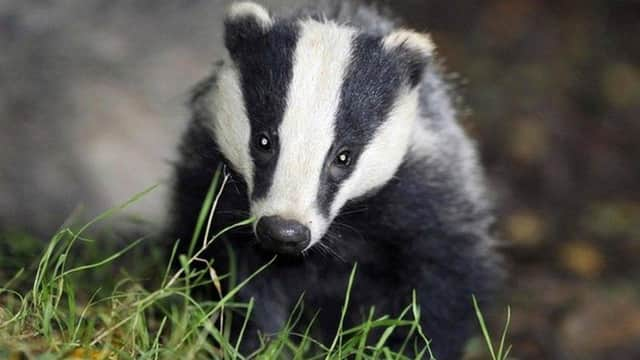Badger cull plan to tackle TB quashed


Mr Justice Scoffield identified a failure by the Department for Agriculture, Environment and Rural Affairs (DAERA) to fairly disclose enough information about the scheme during a consultation process.
He granted a judicial review challenge mounted by campaigners opposed to the controversial programme announced by former Minister Edwin Poots in March last year.
Advertisement
Advertisement
“The result will be that, assuming the Department wishes to proceed with a wildlife intervention element to the strategy, it will have to reconsult on that aspect of it in compliance with legal requirements,” the judge stated.
The proposed cull aimed at wiping out bovine TB involved the ‘controlled shooting’ of free-roaming badgers by farming companies.
At the time Mr Poots stressed it was to be a targeted intervention limited to specific areas where the animals may play a significant role in the maintenance of the disease among cattle.
But dismayed charities claimed that allowing farmers to use rifles to kill up to 4,000 badgers a year would be inhumane and ineffective.
Advertisement
Advertisement
The Northern Ireland Badger Group and non-profit organisation Wild Justice challenged the decision, claiming a failure to carry out proper and lawful consultation on that part of the strategy.
It was alleged that a business case on different intervention options was not properly disclosed as part of the process in 2021.
Contributors were in the dark about DAERA’s reasoning, or why it did not pursue other more humane vaccination options, according to the campaigners.
Counsel for the Department insisted that all relevant information was summarised in a consultation document issued with sufficient detail to ensure an informed response on the part of consultees.
Advertisement
Advertisement
But Mr Justice Scoffield concluded there was material which should have been disclosed for them to have an opportunity to engage meaningfully with the proposed course of action.
“The court was unimpressed by the respondent’s argument that disclosure of the business case would be too complicated or distracting for would-be consultees,” he said.
“The fact that consultees did their best to respond on the basis of the more limited set of information which had been disclosed to them does not alter the respondent’s obligation to act fairly.”
Granting the judicial review, the judge held they were not told enough - and in sufficiently clear terms - to enable them to make an intelligent response in the consultation exercise.
Advertisement
Advertisement
He highlighted how the intervention involved highly emotive matters and a contested scientific backdrop to the proposal to cull a high proportion of healthy animals which currently enjoy legal protection.
“The respondent failed to comply with the requirements of a fair and lawful consultation by failing to provide consultees with sufficient information about the basis for its proposed decision… to permit them to engage meaningfully with the Department’s thinking,” he confirmed.
“I will accordingly quash the respondent’s decision to implement a non-selective cull of badgers by way of controlled shooting as part of the Department’s bovine TB eradication strategy.
“All other aspects of the strategy remain unaffected by this decision.”
Advertisement
Advertisement
In a statement Wild Justice said: "We are mindful that DAERA may try again to implement a similar policy and we stand ready to challenge any proposal that fails to comply with due consideration of not just public law, but also of the scientific evidence and welfare aspects associated with such action."
Mike Rendle of the Northern Ireland Badger Group added: “Today’s judgement has vindicated our very grave concerns about the way the bovine TB strategy consultation was conducted and the decision to implement a farmer-led cull which would inflict immense suffering on great numbers of healthy badgers.
“The scientific evidence clearly shows that cattle, not badgers, are driving bovine TB in Northern Ireland. Badger culling is not only cruel and ineffective, it is a costly distraction that has no benefit for cattle, farmers or badgers.”